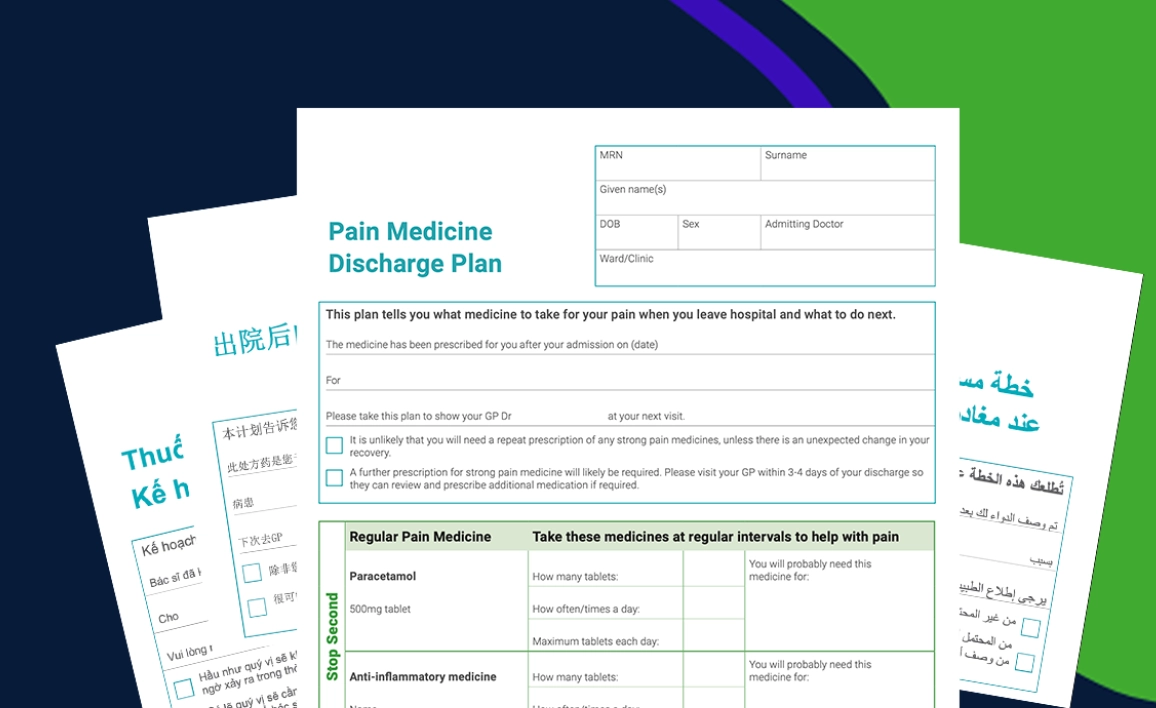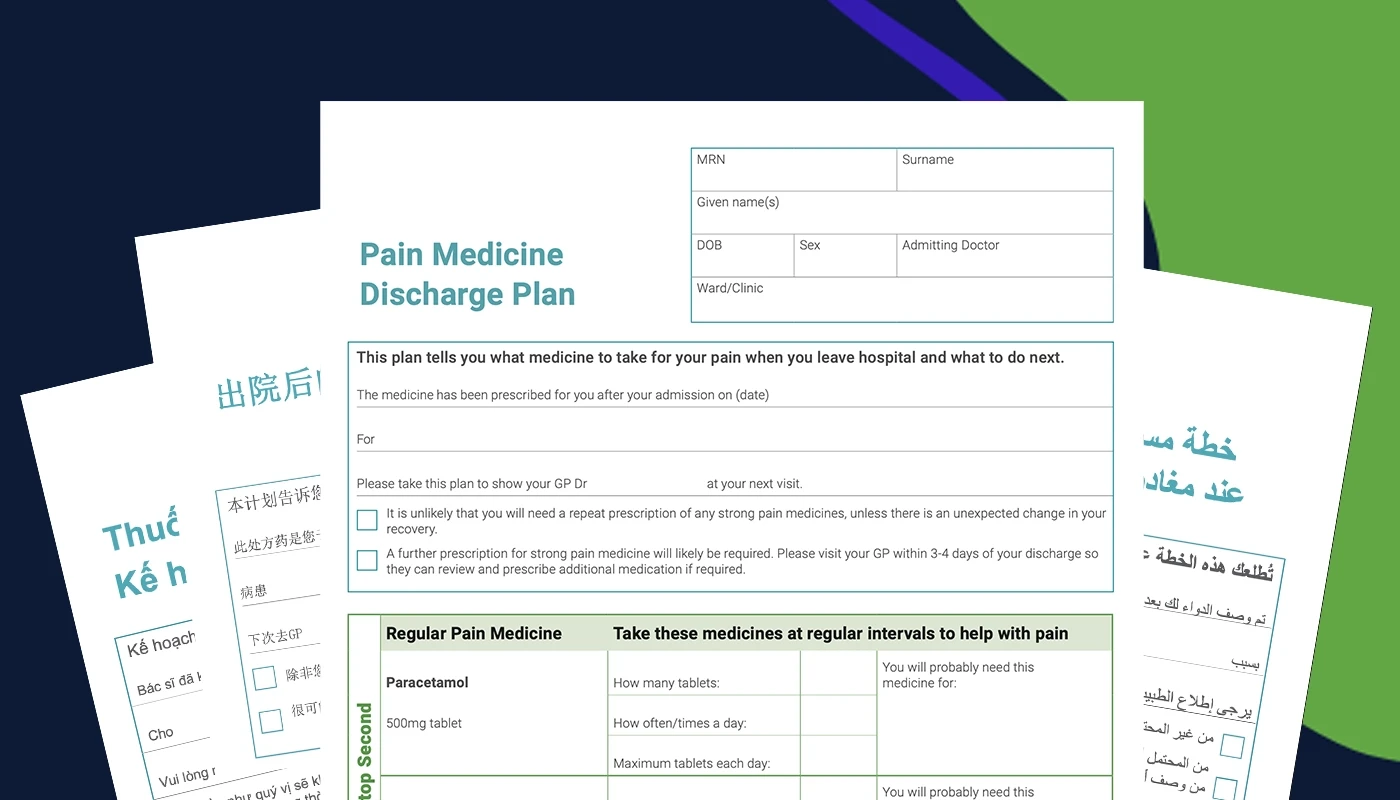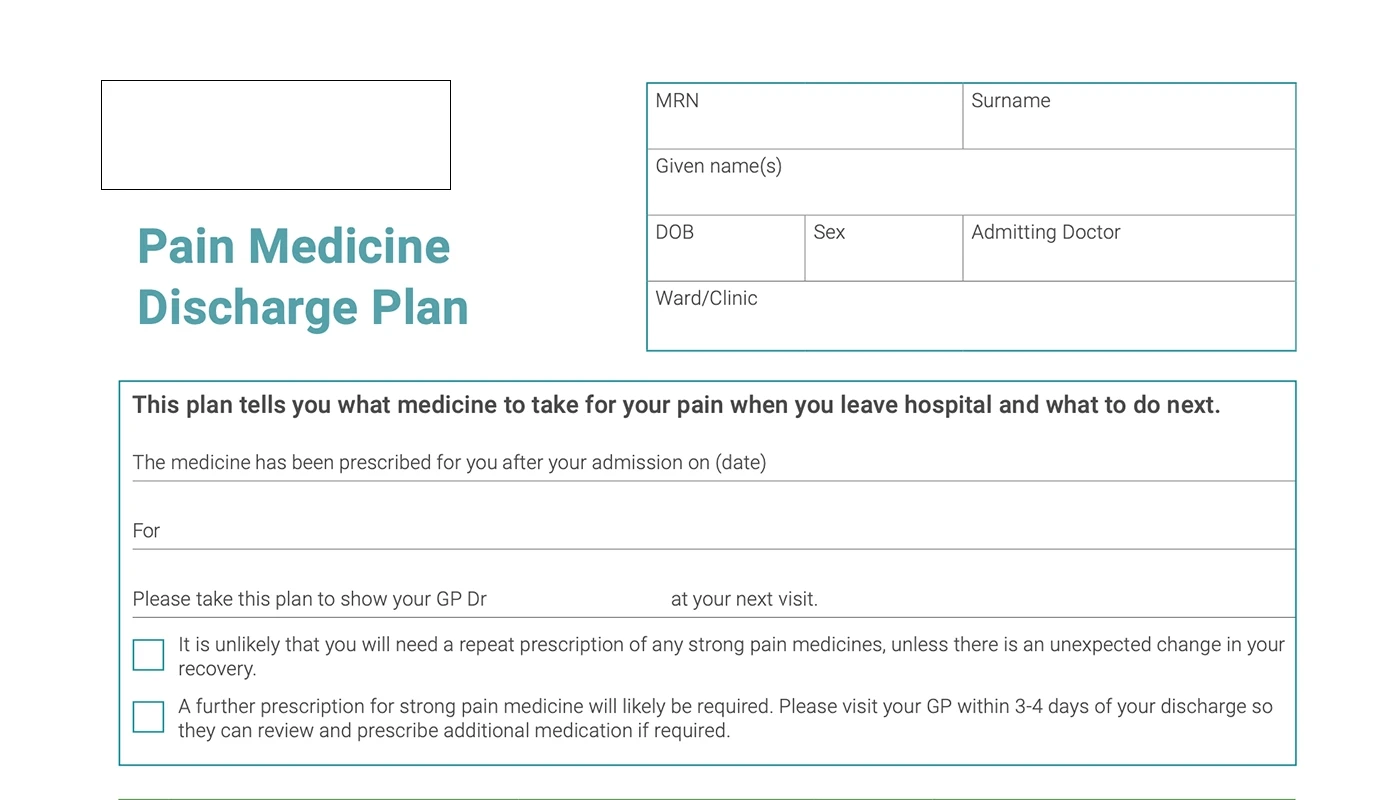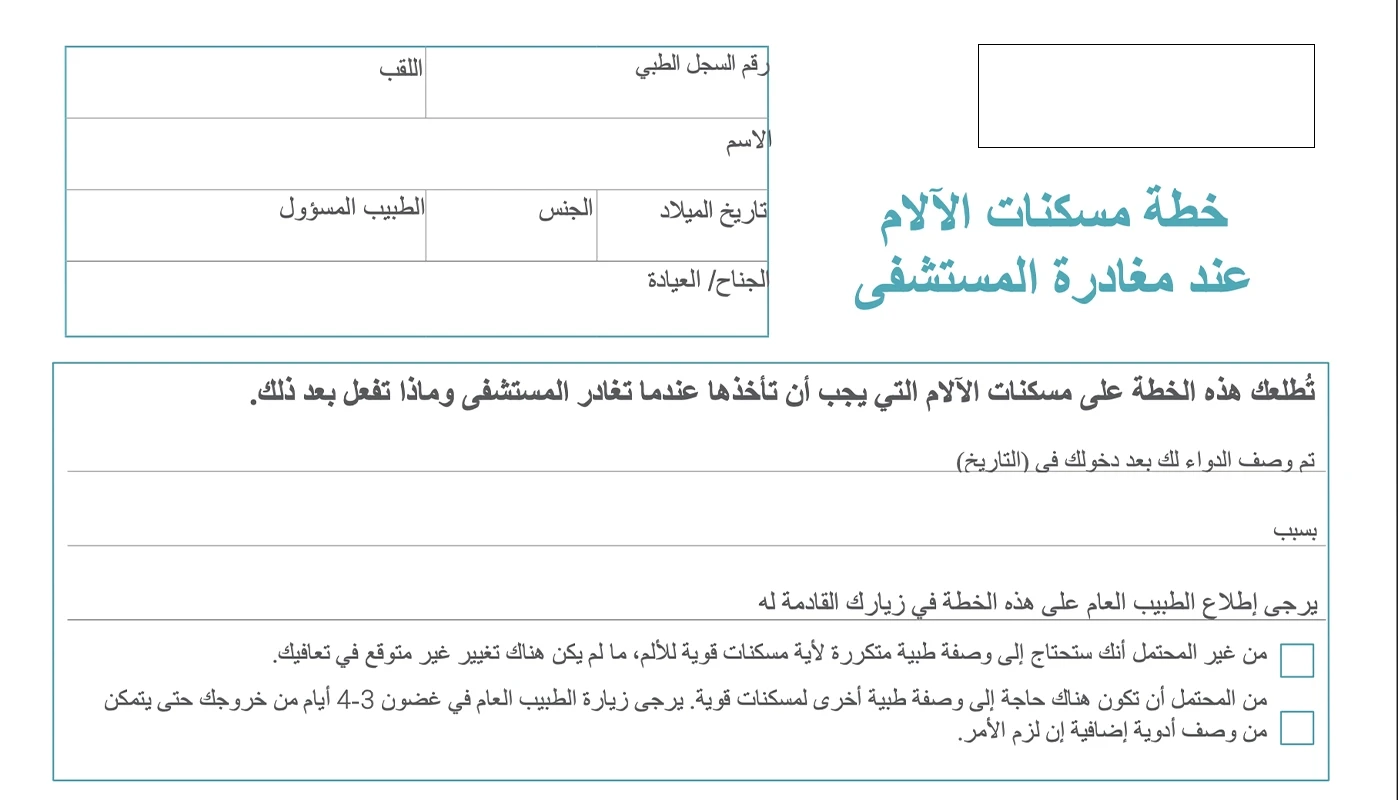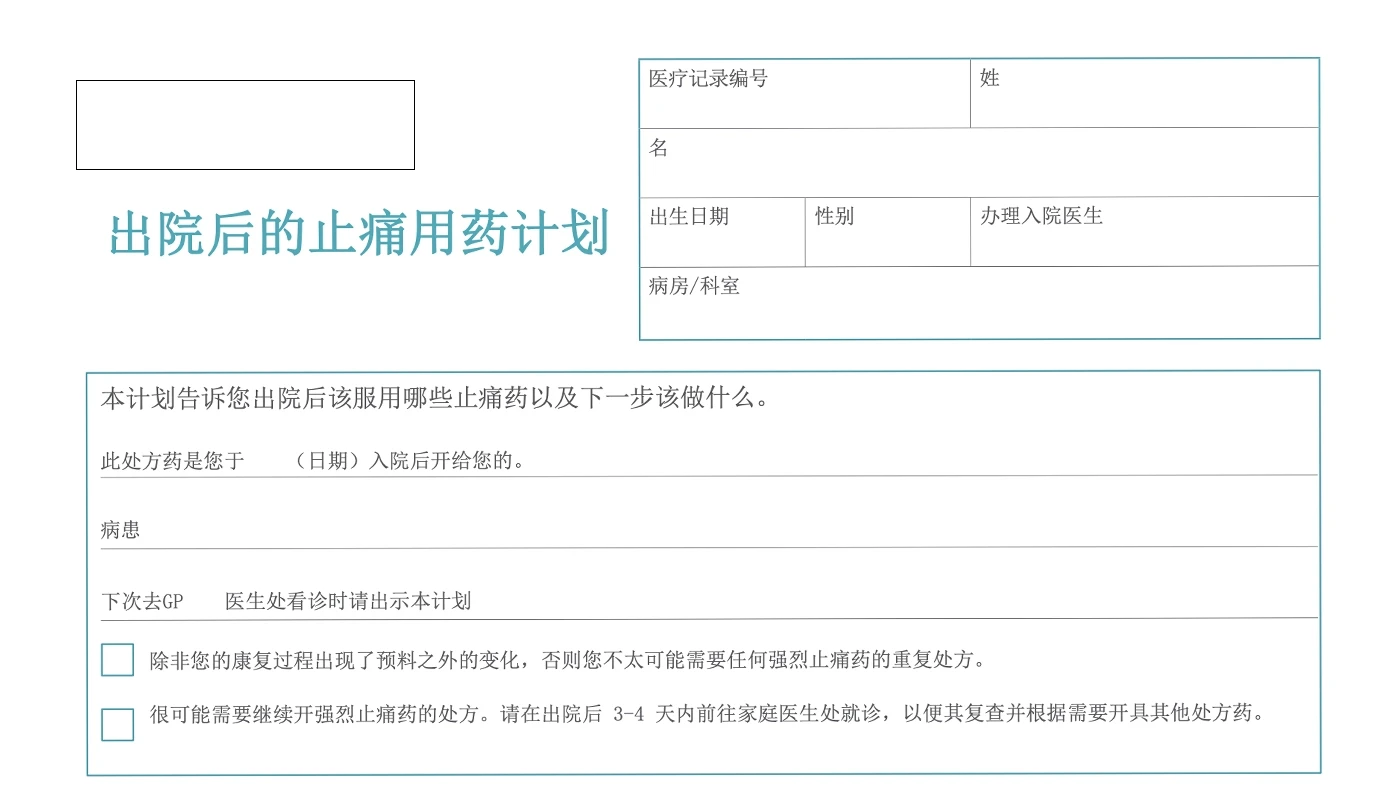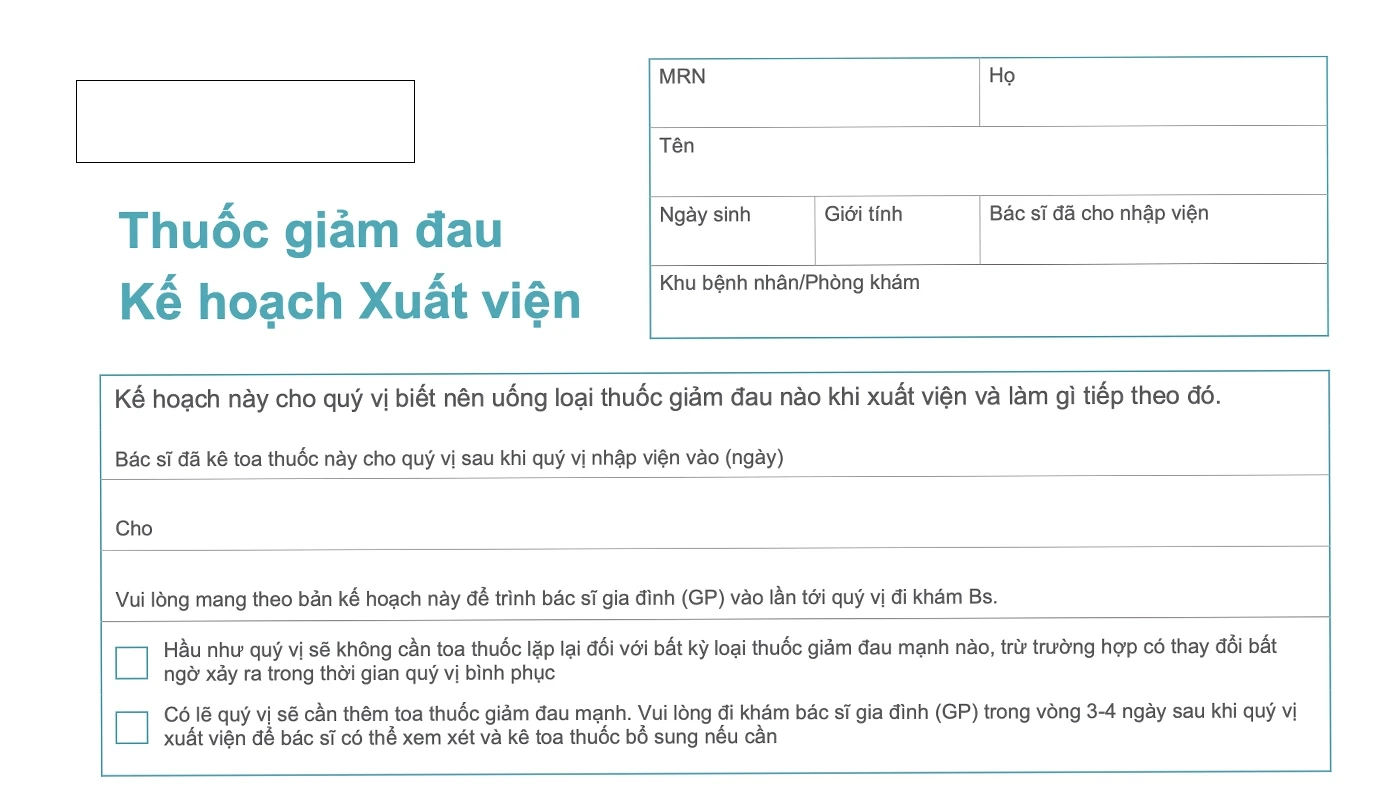In June 2022, following the publication of the clinical care standards, St Vincent's Hospital Sydney (SVHS) acute pain service developed a new patient resource known as the 'Pain medicine plan after leaving hospital'. This resource aims to inform patients about analgesic use after discharge and was modelled on a version previously developed by the Opioid Stewardship Working Party (OSWP).
Widespread consultation with prescribers, pharmacists, health literacy experts, and consumers ensured the form was visually appealing, engaging, and easy to complete by any multidisciplinary team member. Crucially, the form incorporates each of the nine quality statements and recommendations from the clinical care standard.
SVHS has received numerous requests to share this form with other national and international facilities. A subsequent grant from the Australian Society of Anaesthetists (ASA) enabled it to be translated into the top three languages other than English.
Further consultation with consumers, Aboriginal health units, and clinicians with a particular interest in working with Aboriginal and Torres Strait Islander patients has led to the creation of a culturally appropriate version of the discharge plan for Indigenous Australians.
Versions tailored for use in New Zealand, including te reo Māori, are currently being developed.
To encourage the use of the discharge forms included in the ROSI toolkit, the ASA offers the option to customise the form with your hospital's logo or individual professional credentials/physician letterhead. Other alterations that include the addition of atypical immediate release (IR) opioid preparations such as sublingual buprenorphine are acceptable; alterations or changes that would include modified release (MR) formulations are not permitted.
Explore our other resources for opioid stewardship implementation
Discover valuable insights through our video series, where experienced clinicians share practical tips on transforming opioid prescribing practices. Learn how the ROSI tool has led to significant enhancements in patient outcomes and how you can apply these strategies to achieve similar results.
Effective opioid stewardship hinges on identifying areas for improvement, and using audits to provide feedback and demonstrate improvement. Explore our toolkit to learn which audits are most beneficial for your practice and discover the best methods for gathering the necessary data.
Resources contained within the ROSI have been developed by a team of multidisiplinary clinicians experienced in facilitating changes in opioid prescribing.
Use the following documents and websites to help you develop your opioid stewardship programs.
We've compiled a list of frequently asked questions to assist healthcare facilities in understanding and implementing effective opioid stewardship programs.
Resources for Opioid Stewardship Implementation (ROSI) is a toolkit of resources developed by a multidisciplinary team of clinicians to assist organisations in initiating or improving existing opioid stewardship programs.

